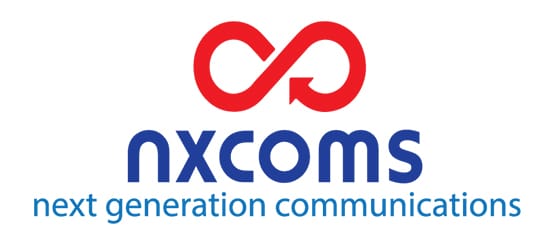
How Much Does Business Full Fibre Internet Cost?
We’re staring down the barrel of The Big Copper Switch-Off.
In two years, the whole copper cable network that so many of us still rely on for our home and business internet will no longer be operational.
What that means is that if your business is still dependent on copper cabling when the time comes, you’re going to be offline until you make the switch to fibre optic technology.
And we mean COMPLETELY offline.
Think about it. How much of the day-to-day running of your business depends on a healthy internet connection? Do you use email? Do you have a website? Use video conferencing? Cloud-based servers, internet banking, even phone systems?
How will your customers get in contact with you? And how will your employees get their work done with no internet access?
It’s simple. They won’t.
With that in mind, smart business owners like you are doing their homework now to find out all about fibre optic broadband and how they can get it.
Oh yeah, and that little thing called money. How much does business full fibre internet cost?
Recap: What Is Full Fibre?
It might feel a tad overwhelming when you’re researching fibre optic broadband to find out how much full fibre business internet costs.
Terms like FTTP, Super-fast, FTTC, Ultra-fast and Hyper-fast might start to swim before your eyes as you struggle through jargon-heavy web pages, searching for a simple answer. You just want to know one thing. How much does business full fibre internet cost?!
So why is it so complicated?
Well, our ol’ copper cable network is still in use. As dramatic as it sounds, the big switch-off is more of a switchover, happening in phases, with Openreach on task to have made the full swap by the end of 2025.
And so up until that point, there will be telecoms packages available that utilise both technologies – copper and fibre optics – to smooth the process of installing fibre optic infrastructure UK-wide and getting everyone connected. And, by making use of both data transfer methods, businesses can simultaneously achieve faster broadband and delay stumping the cash for full fibre internet cost. For now, at least.
So what exactly is full fibre?
Full fibre, also referred to as FTTP (or fibre to the premises), is a single, leased line of beautifully thin and flexible fibres wrapped around a glass core that transmits your data at light speed. One single cable for your business and your business alone covers the whole distance from the exchange to the green cabinet, straight to your front door.
The alternative is a combination of fibre optic and copper. Here, fibre optic cable is used to the cabinet, where the copper cabling picks up the baton and continues the data transmission to your premises. Many homes and businesses use this now if they’re on a ‘fibre optic’ broadband package. It’s a kind of halfway house.
But we will all need full fibre in a couple of years. It’ll be full fibre or nothing. Because when the copper cables go kaput, there won’t be any hybrid broadband packages anymore, leaving most people disconnected from the world wide web.
We’re painting a pretty murky picture here, aren’t we? Don’t worry. The reality of the big copper switch-off is quite the opposite. It’s advancing us to a position where your internet reliability and speeds will be phenomenal.
You’ll say goodbye to competing for bandwidth on the old copper cable system when you change. You’ll say adios to inexplicable drops in connectivity and a real-time speed that never reaches what your comms provider promises.
Full fibre means a super dependable connection with incredible internet speed and quick fixes if anything goes wrong.
Not sure how fibre optics differ from regular broadband? Catch up on this recent blog.
How Much Does Business Full Fibre Internet Cost?
Full fibre internet cost isn’t as clear cut as you’ll want it to be, I’m afraid.
But there’s good reason for it. Full fibre internet cost is so variable because businesses can tailor their package. How fast do you want to get your downloads? How much bandwidth do you need? 4G backup? And this isn’t an exhaustive list of things to consider – there’s a whole world of possibility.
The beauty of full fibre is how completely customisable it is.
But that’s not the answer you want, is it?! So let’s get down to some numbers.
How much does full fibre internet cost?
Providers generally offer tiered packages to meet a wide range of customer needs. Prices for full fibre start with basic packages, with introductory prices of around £40 a month that increase after the first year or so. With these ‘essential’, lower-cost packages, you’re looking at around 100Mbps download speed for that cost. And that will be enough for plenty of smaller businesses.
Higher-tier packages, where you can expect to pay anywhere up from £100 to £300 a month for around 1Gb speeds with varying extras, are the gold standard of business fibre optics. These deals often come with the latest WiFi 6 broadband routers, hefty guarantees, free installation and different premium features that you can mix and match to suit your needs.
Is Your Area Covered?
When you want gold-standard broadband, you go fibre optic. But can your business get it?
Fibre optic is a super reliable technology that will futureproof your business, but it’s new, which means it’s not available everywhere – yet.
The great news is that over 90% of UK towns and cities are already hooked up. Providers have even managed to roll out connections to remote areas and islands, so there’s a very good chance your business will be able to get easy access to the Ferrari-fast internet speeds of fibre optic broadband.
Business Fibre Or Domestic Fibre Optic Internet?
So you’ve decided to make the jump. You’re a wise owl. Getting ahead of the game and installing fibre optic now, before the real countdown to the big copper switch-off begins, means you can start enjoying the many benefits immediately.
And with remote working here to stay, you need to make sure any employees working flexibly or from home have access to the same superfast connection. Not only will a speedy, stable internet ensure your people are working at optimum productivity, but setting up adequate IT solutions will make it easier for them to stay secure, connected and motivated. Do your research and consider which business internet options will be kinder to your wallet. Depending on the number of remote workers you have, paying for a few domestic fibre optic packages for your employees might be less costly than opting for business fibre over multiple locations.
Big vs Small Telecom Providers
The size and status of your telecom provider can influence how much it costs you.
Many business owners will automatically lean towards the big names once they’ve decided to make the switch, but this can be an expensive mistake.
Larger companies provide off-the-shelf packages that are unlikely to match your needs, don’t have time to learn about you and your business and are notoriously slow to respond to internet issues, costing you serious money.
Need we say more?
We’ve written a pretty comprehensive blog on the benefits of using a smaller telecom provider here. Give it a read if you need further convincing.
Full Fibre Is The Way Forward
There’s little point in half-baking the future-proofing of your business. You wouldn’t plug just one hole in a sinking ship, right?
And that’s what you’ll be doing if you don’t switch to fibre optic broadband before the end of 2025.
With the end of copper cabling coming up, looking into and comparing prices for full fibre internet now will be worthwhile since costs will likely increase with demand…
Not sure how fibre optic is different to normal broadband? Lucky for you, we’ve written a blog about it. Read it here.


